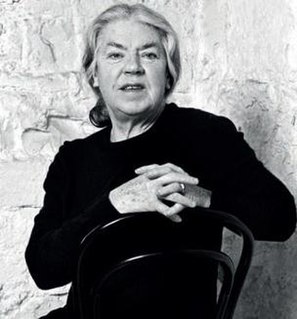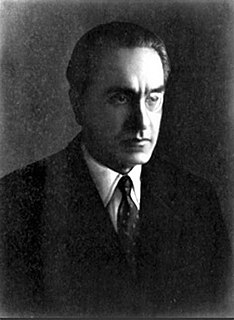A Quote by Mary Lavin
Her theme was happiness: what it was; what it was not; where we might find it, where not; and how, if found, it must be guarded. Never must we confound it with pleasure. Nor think sorrow its exact opposite.
Related Quotes
Woman must come of age by herself. This is the essence of 'coming of age'-to learn how to stand alone. She must learn not to depend on another, nor to feel she must prove her strength by competing with another. In the past, she has swung between these two opposite poles of dependence and competition, of Victorianism and Feminism. Both extremes throw her off balance; neither is the center, the true center of being a whole woman. She must find her true center alone. She must become whole.
You must learn her. You must know the reason why she is silent. You must trace her weakest spots. You must write to her. You must remind her that you are there. You must know how long it takes for her to give up. You must be there to hold her when she is about to. You must love her because many have tried and failed. And she wants to know that she is worthy to be loved, that she is worthy to be kept. And, this is how you keep her.
The difference between shallow happiness and a deep, sustaining joy is sorrow. Happiness lives where sorrow is not. When sorrow arrives, happiness dies. It can't stand pain. Joy, on the other hand, rises from sorrow and therefore can withstand all grief. Joy, by the grace of God, is the transfiguration of suffering into endurance, and of endurance into character, and of character into hope--and the hope that has become our joy does not (as happiness must for those who depend up on it) disappoint us.
But I must explain to you how all this mistaken idea of denouncing pleasure and praising pain was born and I will give you a complete account of the system, and expound the actual teachings of the great explorer of the truth, the master-builder of human happiness. No one rejects, dislikes, or avoids pleasure itself, because it is pleasure, but because those who do not know how to pursue pleasure rationally encounter consequences that are extremely painful.
What we've been finding is people are afraid of happiness. They're afraid of happiness because they think we'll stagnate or we'll be blind: that if I'm happy now, I won't keep fighting as hard. If I'm happy now, I won't push as hard to make a better world. That's what pleasure does. Joy does the exact opposite.
Recently, one friend asked me, "How can I force myself to smile when I am filled with sorrow? It isn't natural." I told her she must be able to smile to her sorrow, because we are more than our sorrow. A human being is like a television set with millions of channels. If we turn the Buddha on, we are the Buddha. If we turn sorrow on then we are sorrow. If we turn a smile on, we really are the smile. We can not let just one channel dominate us. We have the seed of everything in us, and we have to seize the situation in our hand, to recover our own sovereignty.
Mr Thornton would rather have heard that she was suffering the natural sorrow. In the first place, there was selfishness enough in him to have taken pleasure in the idea that his great love might come in to comfort and console her; much the same kind of strange passionate pleasure which comes stinging through a mother's heart, when her drooping infant nestles close to her, and is dependent upon her for everything.





































